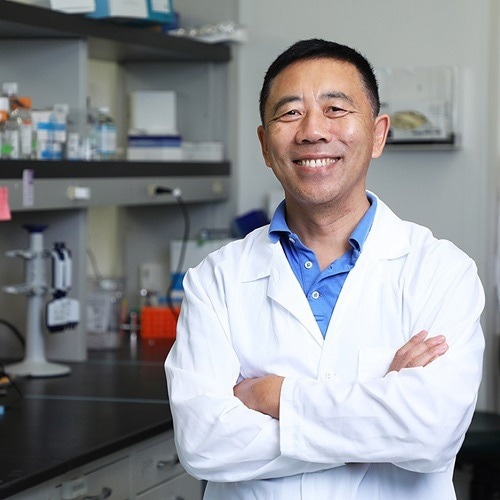The Hackensack Meridian Center for Discovery and Innovation's (CDI) Xue Lab has made yet another advancement in understanding the immune system and its potential for disease-fighting modulation.

Image Credit: Center for Discovery and Innovation
Hai-Hui (Howard) Xue, a CDI member, published the findings in the journal Nature Immunology regarding a particular protein and how it controls the development and effectiveness of CD4+ T cells.
Based on immunological implications, the Xue lab, part of the CDI's Institute for Immunologic Intervention (3i), may be able to develop better cancer treatments and vaccines in the future.
The transducin-like enhancer (Tle) protein family is the focus of the molecular analysis. Their investigation focused on Tle3 specifically and how it works in T's training.
In preclinical models, both ex vivo and in vivo, their observations consistently revealed that Tle3 served as a mediator and regulator of intricate interactions. These interactions enabled antigen-experienced T cells to specialize in response to foreign threats, transforming into central memory T cells that exhibited enhanced efficacy in protection.
Xue and colleagues enhanced the immune response by quickening the production of central memory T cells and relieving the "brakes" on Tle3's regulation.
According to the research, the implications could open the door for future immune system manipulation by removing the brakes and enabling T cells to react to threats such as cancer and infectious diseases more quickly and powerfully.
In sum, Tle3 uses dual functions in gene regulation guard (effector memory) T cell lineage fidelity, and releasing the brake mediated by Tle3 facilitates the formation of (central memory) T cells with better durability and more robust recall capacity.”
Hai-Hui Xue, Faculty Member, Center for Discovery and Innovation
Source:
Journal reference:
Zhao, X., et al. (2024). The transcriptional cofactor Tle3 reciprocally controls effector and central memory CD8+ T cell fates. Nature Immunology. doi.org/10.1038/s41590-023-01720-w.